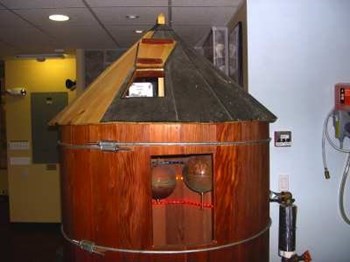
If you want to be a doctor, you go to medical school -- if you want to be a lawyer, you go to law school. But what if you want to be a property manager? Do you go to property management school?
Actually, no. Despite the wide range of knowledge, the ability to handle multiple problems simultaneously, and the people skills needed to be an effective managing agent, the state of New York has no licensing requirement for property managers.
"Basically, the only requirement is a real estate sales license,” says David Kuperberg, president of Cooper Square Realty, a Manhattan-based company that has a property-manager training center, as well as other educational and training programs for managers. “So almost anyone can say they’re a property manager -- but that doesn’t really qualify an individual to be a property manager.”
Despite the lack of state requirements, most buildings and management companies want their managers to undergo some training. Bigger buildings and larger management companies may require more training, and if a manager wants to move on to bigger jobs and handle bigger buildings, specific kinds of training become a necessity.
New Training Technology
In any building, regardless of size, maintenance and upkeep of the physical plant is largely under the purview of the superintendent. And while the manager isn’t likely to be grabbing the toolbox to make major repairs, a basic knowledge of the building systems can always benefit managers by preparing them to respond effectively in certain situations, and to be more knowledgeable when talking with repairmen and contractors.
But there’s no legal requirement or management industry standard stating that a building manager must know anything about a building’s systems in order to manage the building. Furthermore, Kuperberg says there are few places managers can go to learn about how the HVAC system works, or what the various components of the plumbing structure do.
"When it comes to property management training, there’s very little on building systems," Kuperberg says. "If you look at all the books and courses, they’re terrific courses -- they teach how to calculate ideal rents, and how to set up a maintenance program, but they don’t teach a manager anything about the physical components of building systems. It’s very important that a manager understands those components, but to my knowledge, these things are not taught elsewhere. There’s a big lack of building system education for managers in this industry.”
The Learning Center
To address this gap in their own incoming managers’ professional development, Cooper Square has built its own in-house Learning Center consisting of 17 stations representing the different components of a typical residential building. The Learning Center is a 750-square-foot room containing scale models of an elevator, a water tank, a boiler, an air-conditioning plant, a cross-section of roofing, and various other building systems and features.
"[The models] aren’t courses,” says Kuperberg. “They’re stations, and an individual needs to go through every station and take a test in order to be certified by Cooper Square," Kuperberg says. "And that test requires them to pass not only the overall test, but each and every station. We’re not teaching the property managers to be boiler mechanics, but we want to make sure every manager has a basic understanding of how a boiler works.”
Kuperberg says that his company discovered that property managers receive a basic education on the “theory of property management.” There are books, theories, diagrams, but there was nowhere to get “hands-on” training on actual physical building systems. That’s where the Learning Center – the only one of its kind in the country – comes into play, he explains. “The idea is not to train a manager as a total expert,” he relates, but for them to become as well-rounded as possible in the property management field. There are separate audio/visual and hands-on training modules for each individual station.
After completing the modules, each property manager, super or concierge is then evaluated at the end with a 100-question test. If they don’t pass it, he says, they are required to come back and retake the training. At the concierge station, for example, employees learn about proper security methods, access control, package delivery, resident alerts, work orders and building inspections. And the porter, says Kuperberg, can examine different types of flooring, and learn the appropriate cleaning method for each surface. For example, one should never wash a wood floor with soap and water.
“Our job as managing agents is to not only improve the quality of a building but the perception of the building as well.”
Technology is also fully integrated into the system, says Kuperberg. Managers carry Palm Zire-style PDA’s so that they can track building information, file inspection reports (complete with color photos of the building), and monitor such things as late payments, or violations of house rules. A manager can send a letter automatically to a resident or to the board, if need be, directly from the Palm device.
Staying the Course
Why bother taking courses when they’re not required? Because increased knowledge not only can help manager do their job better, but can help them advance their career. And since opportunities to study building management in college are rare, the education and training programs offered by professional association and management companies may be the way to go.
"There are almost no college programs available in property management,” says Kuperberg, “so formal education for property management is generally left to either training associations or company programs.” He adds that there is almost an "alphabet soup" of training programs provided by different trade associations, and that aspiring management professionals need to do some research before deciding which course to take.
Knowing How to Use It
As anyone who gets a new computer can attest, having the latest gizmo or program is one thing. Understanding how to use it to its full potential is another. In particular, it’s vitally important for individuals to learn how to use software and other assistive products or devices in direct relation to property management. “It’s one thing to learn Excel,” says Margie Russell, executive director of the New York Association of Realty Managers (NYARM), “but it’s another thing to apply it to your particular area of expertise.”
That’s why things like proper computer training are so important. Russell has high praise for building staff unions and trade organizations, which are providing computer and software training to its members. “I can’t say enough how terrific it is that [this is happening,]” she says.
Organizations such as NYARM and others do offer training programs, but there is always room for more. “There are plenty of places throughout the city for managers to learn these technologies and programs, but it’s so difficult for people to find the time in their day.” On the practical side, “it’s difficult, too, to find a classroom full of computers to use to teach people.”
Part of knowing how to use technology includes being able to control it as well. “There’s an avalanche of information being communicated now,” Russell says. Where technology has made it easier to get information out, it’s also added another layer of stress in terms of making sure the most important pieces of information are not lost in the shuffle or delivered to the wrong people.
“There has to be something else there to help move that avalanche along,” Russell continues. She suggests that systems must be in place to help funnel that information to the correct individuals, ensuring that financial information makes its way to accountants and boards while details about boiler issues or building infrastructure are quickly and accurately funneled toward building staff.
Changing Times, Better Training
The important thing to remember, say the pros, is that managers can’t stay in a time warp and be efficient at their jobs. By undergoing some form of study, and staying on top of the opportunities and advances available to them, managers can learn more, develop their skills in the business, keep up with technology and even learn a trick or two that they had previously missed. Even without a strict legal licensing requirement for managers, the best and most successful agents and firms know that continuing education and comfort with new technology will be one of the cornerstones of success, along with professional certifications.
"A manager without certification is really a manager who doesn’t exhibit credentials for the public," says Kuperberg. "I cannot see how a board would hire a manager who does not demonstrate an education and commitment to the industry."
Anthony Stoeckert is a freelance writer and a frequent contributor to The Cooperator.






Leave a Comment